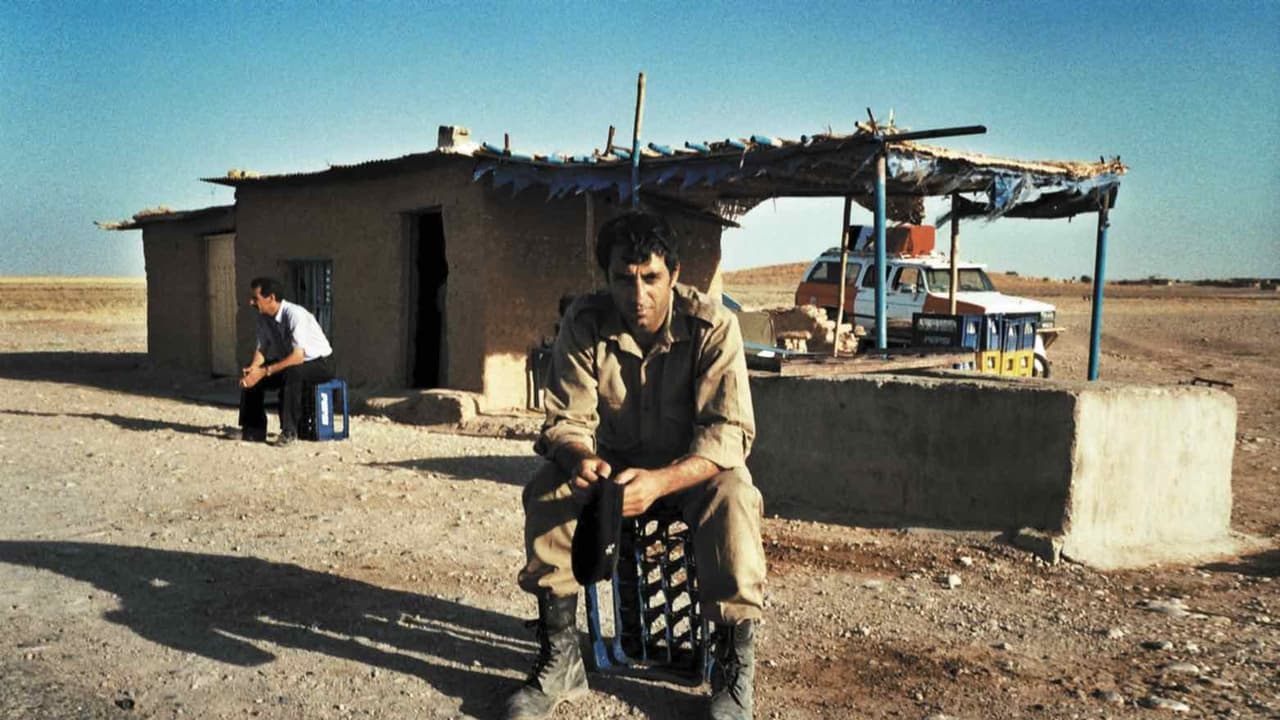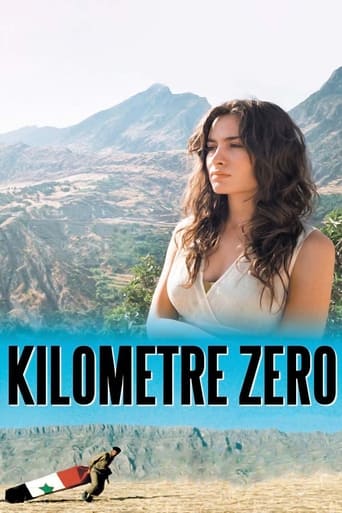



I really wanted to like this movie. I feel terribly cynical trashing it, and that's why I'm giving it a middling 5. Actually, I'm giving it a 5 because there were some superb performances.
View MoreAmazing worth wacthing. So good. Biased but well made with many good points.
View MoreThis movie tries so hard to be funny, yet it falls flat every time. Just another example of recycled ideas repackaged with women in an attempt to appeal to a certain audience.
View MoreWhile it is a pity that the story wasn't told with more visual finesse, this is trivial compared to our real-world problems. It takes a good movie to put that into perspective.
View MoreAs stated in french ' notre passé est triste, notre present est tragique, mais heureusement on n'a pas d'avenir" (our history is sad, our present is tragic, fortunately we dont have any future). This movie is a bit about the history of the Kurds in Iraq. Besides the obvious anti war tone of the movie, I gues this movie tries to highlights some facts about the Kurdish history. A Kurdish movie made in 2005 with the artists from Kurds from Iraq and Turkey.in addition ot the anti-war tone of the movie, I can underline some messages: -The the despair of the Olds who put the Kurdish generations in the illiterate and oblivion. -The very frequent and well known fact that since a Kurd run a way from his own militia would be forced to serve in the bang of disgusting torturer and his life would be a mess. -A kurd will usually be despised and deceived by the others. -A kurd will not be both pious and racist towards other languages ( The Kurd will feel anger and despair watching the Kurdish soils around him, while the arabian racist driver praying). -Western had forgotten the Kurds but nevertheless it is only them where Kurds today could find the refuge. is the declared liberty at the end of the movie real? We have to wait the future to tell us.
View MoreThis movie is the wet dream of any ex soviet film maker, director, producer, script writer, whatever. And not just ex soviet, any Eastern European too. The irony, the depressive scenes, the ugly irony, the pointless violence, simply all of it would feature proudly in any of the tens (or hundreds?) of crap features about how the stalinists came and pushed that particular proud savage territory from organic apple makers to polluted bankrupt industry nobody seems to need.Sadly this is not enough. The trailers that came as a bonus with the DVD are far better than the whole film. There is a simplicity and an irony that simply can't be found in the whole hour and a half. The camera is nice. The idea is even better. And everything seems to stop there. The feature is too long for the story. And it has timing problems -- for example a man who died after the main characters leave the front is mysteriously already waiting somewhere near the end.Contact me with Questions, Comments or Suggestions ryitfork @ bitmail.ch
View More"If the starting point is zero the only way to move is forward", said director Hiner Saleems in an interview. His movie "Kilomètre zero" is made out of this indestructible optimism in the middle of horror.In a small town in the North of Iraq during the times of the "First Golf War" the Kurd Ako (Nazmî Kirik) is recruited by force to fight against Iran, while Saddam Hussein is already preparing his extermination campaign against the Kurdish minority. After some time at the front he gets the order to escort a killed soldier to his family his chance to escape the war. Together with an Arab driver who treats him only with contempt he takes of for an arduous journey through Iraq.With charm Hiner Saleem masters all the patterns that makes a movie on dictatorship and suppression attractive for the festivals. There is the stage-like minimalism in plot and equipment, the impressive photographic production and the excellent choice of music. With so much ability the spectator excuses generously that the plot is getting out of hand in the end. The almost absurd ease is a clear post against melodramatic transfiguration of war à la Hollywood. An important reminder that suffering never can be completely seized by a movie.But what makes this movie really special is something else. It's the small glimpses between the lines of the film-text. Truly eerie moments in which the movie is dropping all playfulness in front of a scenery of constant murder and terror. There is just nothing like this movie. Over 10 years virtually no movie was produced in the nation of Iraq. This is a piece of movie history.Trivia: The constant presence of a huge statue of Ex-dictator Saddam Hussein on the set was problematic. The sculptor ordered to make this "piece of art" was once even thrown into prison before the filmmakers could clarify the situation.
View MoreSet in 1988, the young man Ako is conscripted to fight (along with his fellow Kurds) for the armed forces of Iraq in their conflict with Iran. The draft process is fraught with ethnic hatred and the newly-inducted soldiers conduct the fight only with an eye to helping themselves to find a way home, even if it means a self-inflicted gunshot wound.Ako gets a chance to return home as part of a funereal honor guard, traveling with an Arab driver in a truck carrying a flag-draped coffin. As the body rots in the hot mid-Eastern sun the Arab and the Kurd unsuccessfully suppress their animosity towards each other. The hatred which continues to this day (although it is both Shiite and Sunni Arabs who hate each other as well as hating the Kurds) lends but a small sense of the tragedy that is inevitable in ethnic conflicts. A tragedy seemingly mocked throughout the film by a statue of Saddam Hussein sitting on the back of a flatbed truck, running about the countryside in constant salute, mutely exhorting Iraqis to the greater glory of the state.Ako does get home, and his family's story is somewhat resolved at the end as we fade to April 9, 2003 in Paris. On this day we see Ako and his wife together in Paris, jubilant at the news of the US taking of Baghdad. At this point the current-in-time viewer realizes how this movie lives up to its name: given the state of Iraq in early 2006 three years after the US invasion, we know that is where Iraq today is at Kilometer Zero.
View More